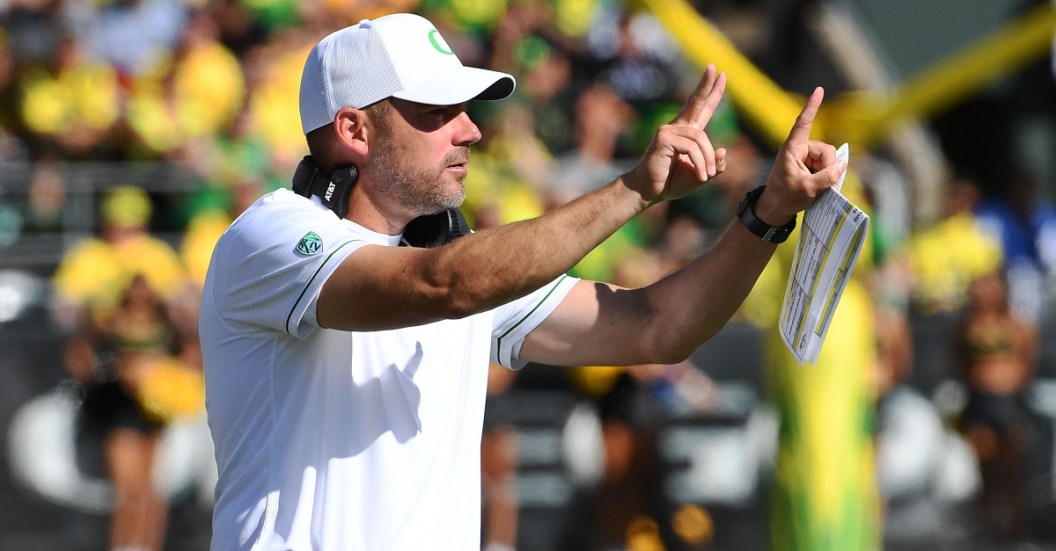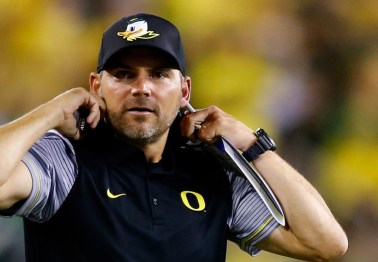Oregon doesn't exactly abide by everyone else's rules when it comes to running an offense. It's kind of their thing, and for the past decade, it has generally worked very well for them.
It didn't work well on Saturday, though, as the Ducks potentially cost themselves a win over Nebraska after attempting two-point conversions after all five of their touchdowns. Oregon only converted one of the five, and they ended up losing to Nebraska by three points... the exact margin they lost by not attempting PATs after their scores.
According to ESPN, Oregon coach Mark Helfrich won't back down from that philosophy after the Nebraska loss, and that the problem was in execution.
Helfrich explained that there wasn't a predetermined stance to go for two-point conversions after each touchdown. Rather, their philosophy — in which the holder sees what the defense is giving them and then makes the call between kicking PATs versus going for two — determined that each become a two-point play (the final two attempts involved just the offense staying on the field).
The surprise two-point conversion can be very useful, and it's a good way to keep the opposing team at attention after a score. Oregon has been on top of attempting two-point conversions, and they have mostly been successful — they converted on 22-of-38 attempts between 2011 and 2015, per ESPN.
RELATED: Bob Stoops calls out his own quarterback after loss to Ohio State
The problem on Saturday, though, was that Oregon overdid it. After converting on their first attempt of the game, the Ducks should have quit with the two-point attempts. The first conversion already gave them a leg up on Nebraska, and they should have gone with PATs from there-on-out to force Nebraska into attempting their own at some point.
Instead, Oregon failed on their next two attempts, resulting in a 20-7 score just before halftime instead of potentially 22-7. Nebraska scored just before the half and on the first possession of the second half, meaning they took a 21-20 lead thanks to the Oregon miscue.
In a week where multiple Top 25 teams fell, a win at Nebraska could have potentially catapulted Oregon into a Top 10 spot. Instead, the Ducks fell, and Helfrich has a lot of thinking and coaching to do if he wants to prevent a situation like this from happening in the future.

